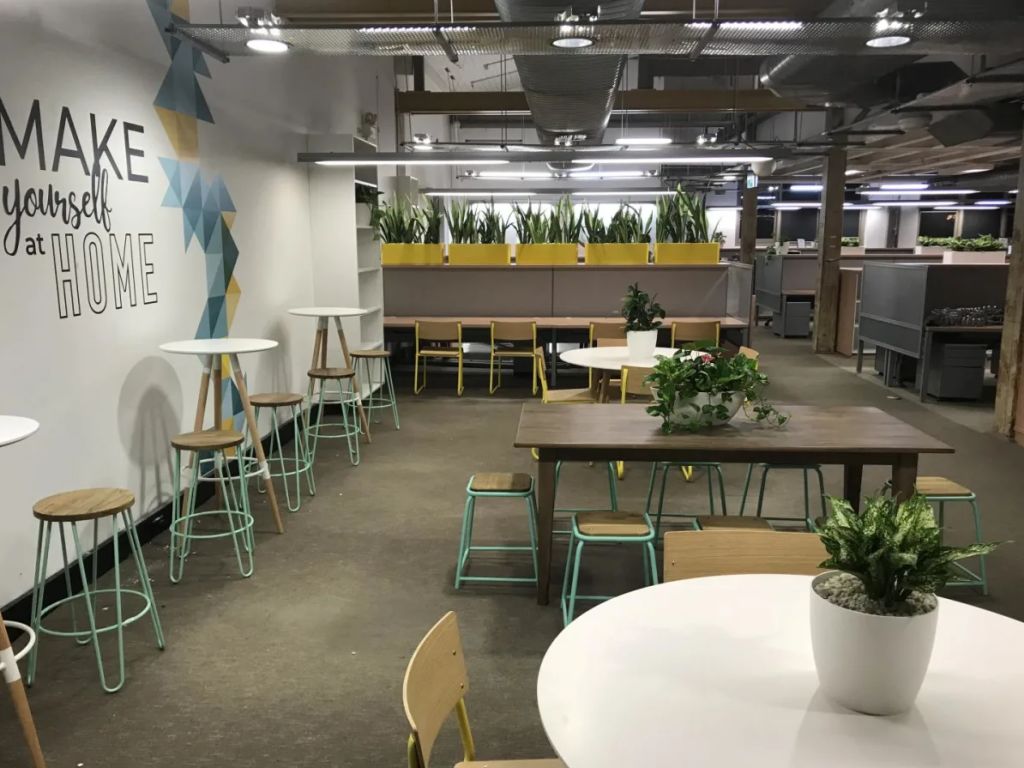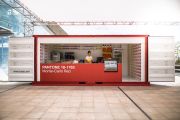
Peer-to-peer coworking gives businesses flexibility to grow at their own pace
Companies with excess office space are increasingly leasing it out to other companies directly, as they look to take advantage of the popularity of coworking, according to one industry insider.
Businesses ranging from law firms to design studios are increasingly tapping into the flexible leasing market to offset overheads and generate additional profit, according to the founder of flexible-leasing website Rubberdesk.
The number of businesses – either owner-occupiers or tenants – who are leasing out additional desk space to other businesses on flexible terms has surpassed dedicated coworking companies on the listing site, which has a partnership with Commercial Real Estate. Rubberdesk founder Jim Groves said that growth in these peer-to-peer listings was increasing at 20 per cent a month.
Mr Groves said that he first saw this growth in July 2018; now peer-to-peer coworking listings make up about two thirds of the site’s transactions.
“[Businesses are starting to ask] ‘Why can’t we lease out our spare office space, or that space in the corner, or that bank of eight desks?”said Mr Groves.
Peer-to-peer listings on the Rubberdesk website come with leases ranging from three months to a year, with more than 15,000 desks available to rent.
Space is leased out under a ‘licensing agreement’ – setting out terms, such as fair use of space and termination of the agreement between ‘host’ and ‘guest’. Rubberdesk offers a standardised leasing agreement form as part of its service, although ‘hosts’ can opt to make their own additions.
According to Mr Groves, there are usually three reasons businesses consider leasing their extra space to other businesses.
They may be seeking to keep up with fixed-term lease commitments but are facing the prospect of downsizing. They may have ambitious plans for medium-to-long-term growth and want to lock in their ideal work space now; or they may have a fluctuating workforce and work on a project-by-project basis.
“We’ve got digital agencies, law firms, marketing agencies,” said Mr Groves.
Architect firms in particular, who often take up residence in impressive offices, are a common sight among the host listings.
“Often what you’ve got is two businesses working in the same discipline but in different areas… We’ve got one marketing agency that rented out three quarters of their office space to another agency,” Mr Groves said of the typical tenancies emerging from the platform.
Not a broader trend
But Sami Schiavi, flexible workspace specialist at Colliers International, said the trend was not likely to find its way into the broader coworking market anytime soon.
“It’s not a market trend,” Ms Schiavi said, adding that major players like WeWork and Regis were “absolutely dominating the flexible space right now” and that the majority of businesses leasing excess space on flexible terms were likely to be in the midst of downsizing.
Ms Schiavi said that some of her clients had ended up taking short-term options under a peer-to-peer lease because of the limited leasing opportunities in the hot CBD office markets of Sydney and Melbourne.
“It’s an interim solution because vacancy is so low that people have to take whatever they can find,” Ms Schiavi said.
She said that major coworking companies still offered something that most peer-to-peer listings did not – security beyond a 12-month agreement.
“There’s no security [with a peer-to-peer arrangement], because it’s all on the other company’s terms,” she said, adding that licensing agreements were often “just a loose agreement that people have with the business”.
Different propositions
On a per-desk figure, peer-to-peer listings would appear to be a cheaper outlay than those offered by a commercial coworking operator – although Mr Groves said that the reason many businesses did it went beyond pricing.
He said that peer-to-peer listings were able to tap into a different section of the market than commercial coworking operators – even though the price differentiation was minimal.
“It can be cheaper than going with a commercial operator. We see an average dollar value of $500 per desk [per month],” said Mr Groves. In comparison, WeWork’s hot desks currently start at $450 in Sydney.
But the location of the office, workplace culture and lease length were important to many prospective tenants.
“There’s a lot more choice around what’s available. It’s not just the pure price point, often it’s about the community that’s already there, the businesses that are already there. If you’re going to be in an office for a year or more that’s important.”
Startups want flexibility, personalisation
Rubberdesk gave Sydney startup Made Comfy the peace of mind it needed to secure its own office space on the open market, according to co-founder Quirin Schwaighofer.
The short-term residential lease management company now plays host to several other start-ups at its 1000-square-metre office in Ultimo.
Mr Schwaighofer said that Made Comfy, which started out with two employees and currently employs more than 50, opted to secure the lease on the open market after reviewing coworking options.
The company considered WeWork but found it didn’t work on a cost basis and didn’t provide the level of personalisation they required from a space.
“Our decision ended up being based on a combination of price – it’s significantly cheaper – and the fact that we wanted our own space,” Mr Schwaighofer said.
The company signed up to an initial two-year lease during its expansion phase, knowing that it could then lease out the space it initially didn’t need on Rubberdesk, without the worry of paying ‘dead money’ for excess space.
Made Comfy currently leases this extra office space to five other startups – ranging in size from one desk to five.
Mr Schwaighofer said that these ‘guests’ can be asked to leave with one month’s notice – giving Made Comfy easy control over its floor plan.
“It’s given us full flexibility on growth,” he said.













